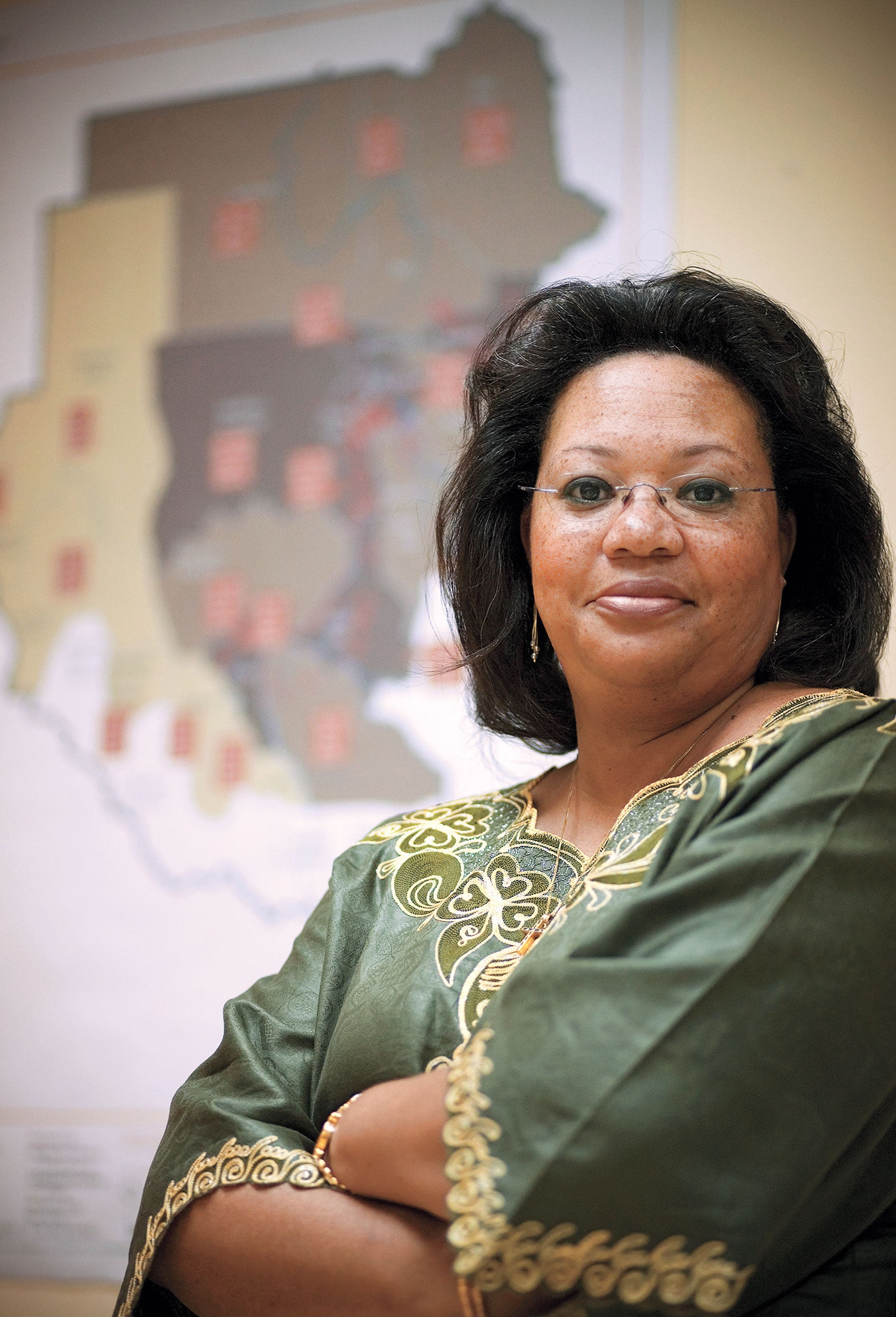For one American in Africa, home is wherever she’s needed
As a teenager growing up in a suburb of Chicago, Susan D. Page ’89 already knew she wanted to live overseas: “I think it was an early reflection of my feelings about the U.S. and how I fit in. I have never felt like it’s really been home.”
For the past decade and a half, Page has made her home and built her career in Africa. She has held a variety of posts in the region, culminating in her role as a key member of the team that negotiated the 2005 Comprehensive Peace Agreement ending the 22-year civil war between northern and southern Sudan.
Page began as a legal adviser to the State Department on arms deals. But, eager to use her legal skills in a developing part of the world, in 1993 she obtained a post with the U.S. Agency for International Development in Kenya as a regional legal adviser. She arrived in Africa as the violence in Rwanda was mounting and she was charged with tasks including examining what aid the U.S. could legally provide, given that Rwanda’s democratically elected government had been overthrown. In the years following the genocide, Page worked for both USAID and the State Department, helping to rebuild the legal systems shattered by violence.
In 2002, she turned her attention to Sudan. Appointed by the State Department, she joined a mediation team put together by a coalition of East African states to negotiate the end of Africa’s longest-running civil war. The conflict had caused nearly 2 million deaths, as Christian black Arabs in the south fought against a program of Islamization imposed by the Muslim Arab government in the north. At least five peacemaking efforts had failed.
Led by Lazaro Sumbeiywo, a Kenyan general, the team worked for three years, sequestered in a series of hotels; toward the end, negotiations went on seven days a week for months at a time.
At the beginning, Page recalls, they let the parties vent. Negotiators from the largely southern-based Sudan People’s Liberation Movement talked of being forced to convert to Islam while those from the government of Sudan complained that a “secular” state was a rejection of the central role religion should play. Then the team set out to create a detailed framework for a peace agreement; this was crucial, Page said, because it meant that the two sides were “operating off of one single negotiating text.”
There were many times when one side or the other would threaten to walk out. “We’d be sitting in the office watching the suitcases just going out the door,” Page said. Sumbeiywo, too, described the negotiations as “very, very tense.” But throughout the process, he said, Page “kept her cool,” and played an important role in pushing things along. Slowly, the negotiations began to pay off. Page remembers clearly when Salva Kiir Mayardit, then a leader in the SPLM and now the vice president of Sudan, signed an early part of the agreement. “He had tears in his eyes, because even he never thought it would happen,” she said.
Today, Page is working for the U.N.’s peacekeeping mission in Sudan, trying to push both sides to fulfill their promises—a new constitution and democratic elections—to allow the southerners to “really participate in the workings of their government at the national level,” she said. But the governing party in the north is dragging its feet, she observes, and there’s a danger that the peace agreement could fall apart.
Page has been focused on Sudan-related issues for five years now and feels a need to move on—to take her negotiating experience and apply it to other conflicts. Part of her would like to move back to the U.S.—her 10-year-old son is “dying to live there,” and she’d like to be closer to her parents. Yet she and her husband, who’s from Ivory Coast, are hesitant to leave Africa. It’s not that Page views it as home, exactly—“There are a handful of us who make this kind of living home, so home is wherever we happen to be stationed at any given time,” she explained—but every time she’s looked for a challenge, Africa is where she’s found it.
